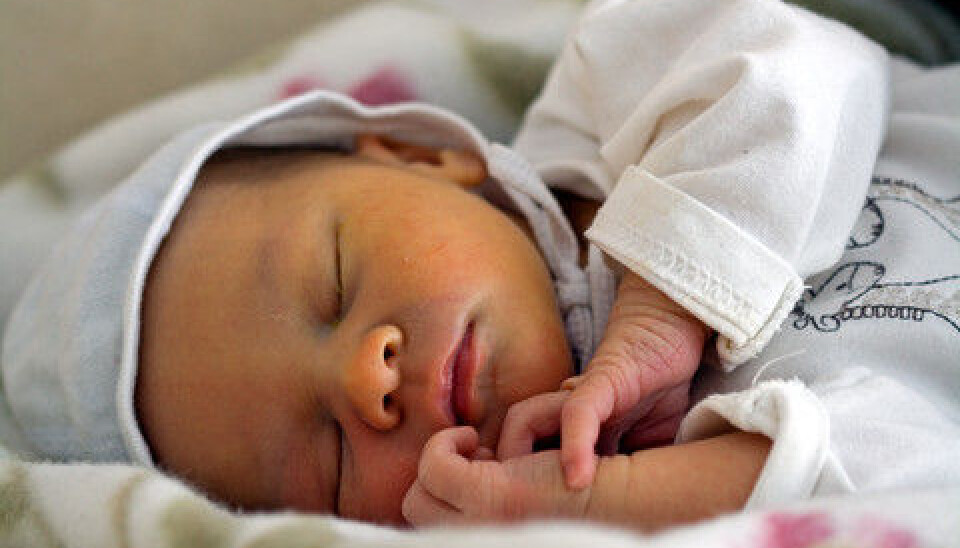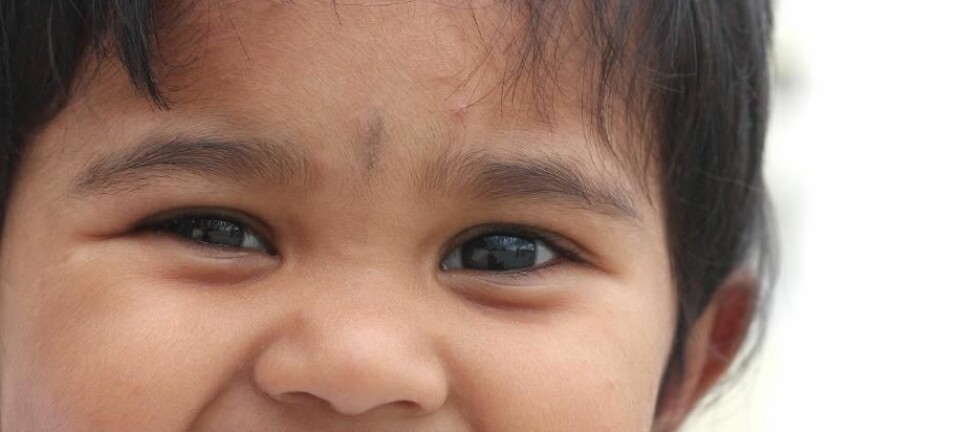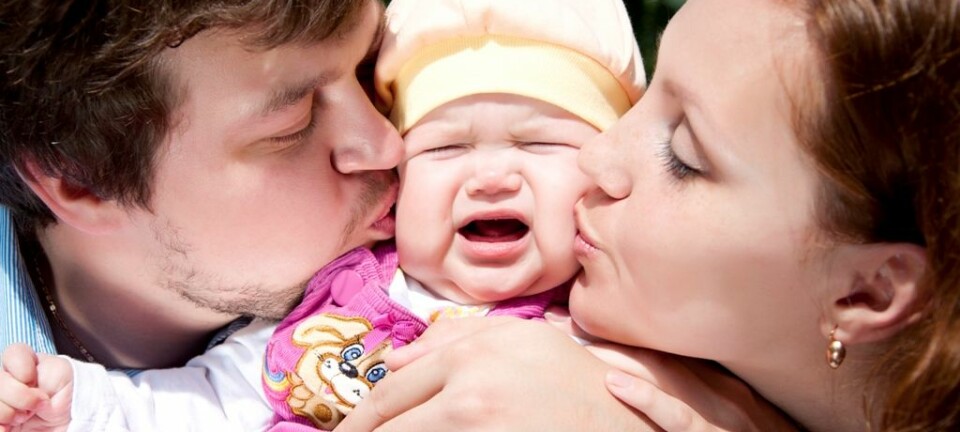
Surrogacy changes perception of family
Childless Norwegians have travelled abroad for surrogacy, as the service is illegal at home. Their actions and willingness to speak out about them have started to transform the idea of what a family is and should be.
Denne artikkelen er over ti år gammel og kan inneholde utdatert informasjon.
Geir and Sebastian Kvarme became parents in 2011, just as about 120 000 other Norwegians that year.
The big difference was that the gay couple got twins who were artificially inseminated inside an American woman, who was paid thousands of dollars to bring forth their children.
The twins were brought to Norway after birth, and today they live with their two dads. Their mother, or “mother”, retains no parenting rights and resides in the United States.
A year earlier, Kari Ann Volden found herself stuck in India with two newborns she had ordered through a surrogacy clinic. A local woman was artificially inseminated, using donor sperm from an Indian man, and although Volden initiated their existence, the twins are genetically unrelated to her.
Therefore they are neither “her” children, Norwegian authorities said, as they refused them entry permit.
These two cases got lots of media coverage, and the debate which followed introduced the public to ethical questions regarding surrogacy, alternate ideas of what a family is, and whether having children is a human right.
Commercial surrogacy
Norway has strict regulations on artificial insemination, and surrogacy is illegal, but life seems to find its way. One estimate is that more than 150 Norwegian children have been born by surrogacy, in countries such as India and the United States.
Most of these cases were in the category of commercial surrogacy, which means that a surrogate mother was paid to be artificially inseminated, endure nine months of pregnancy, and eventually give birth to a child that is taken away from her.
Breaking ground
This is a highly controversial topic, and in Norway most of these transnational transactions have been kept behind closed doors -- because of social stigma and legality issues. The cases of Geir and Sebastian Kvarme, and Kari Ann Volden were the first to be highly publicised.
Sociologist Unn Conradi Andersen at the University of Oslo argues that Vold and the Kvarme couple deserve credit for being the first to challenge the established social norms about childbirth.
“The single mother and the gay couple had to bear the brunt in this debate, as they were the first to talk about it openly, and for that reason I'd say they are brave,” says Andersen, Ph.D. candidate at the University of Oslo.
“The norm is that a child is supposed to result from sexual intercourse between man and woman, and a money transaction should not be involved, at least not a transnational one.”
Media coverage
Andersen has analysed media coverage of surrogacy in Norway, and found that the intended parents were criticised, at times strongly.
An editorial in the weekly newspaper Morgenbladet, about the use of Indian surrogate mothers stated:
“If this isn't imperialist exploitation of economically disadvantaged people it's difficult to imagine what would be.”
The widely circulated tabloid VG also covered the case, and used headlines such as “Baby shopping in India”, and “Children are a gift, not a commodity”.
Victims of biopolitics
But Kari Ann Volden and the Kvarme couple found support in other media, support groups and social media, and stood their ground.
Volden argued that the newborn children were hers because she is the only one who takes care of them as a mother – to her and to them it does not matter that they are genetically unrelated.
“(The children) are innocent. Will the Norwegian welfare state sacrifice them and take them away from the only mother they have?”, she wrote in the newspaper VG.
Volden's children were eventually allowed to enter Norway.
Geir og Sebastian Kvarme are genetically related to their twins, as they have donated sperm, and for practical reasons they each had to inseminate an egg.
According existing laws they can only be the legal father of their genetically related child, and step-father of the other, but the couple argued that they were both parents of the two, together, no matter what genes they have inside.
Trust between state and citizens
The argument in both cases is that parenthood shouldn't be defined by genetic relations alone, and that current laws and definitions need to get with the times.
"These things will probably change as the debate goes on", says Andersen.
Both the Kvarme couple and Volden addressed the state and people in government directly, through media. Andersen argues this implies a strong and trusting relationship between state and citizens.
Norwegian victims, autonomous surrogate mothers
In their public letters to the state and in media interviews, the Kvarme couple and Volden positioned themselves as victims of a system which hasn’t evolved as quickly as it should, and reached out to the authorities for help.
Indians and Americans expect less pragmatism from their governments, and Andersen argues that the surrogate mothers in these countries describe their situations in much more autonomous ways. They are where they are and they do what they do because they want to.
In an interview with the television broadcaster NRK, one Indian surrogate mother said the unusual job of bringing forth a child was her own choice.
“We needed money for our house,” she said.
The American surrogate mother downplayed the money involved. The highly educated woman stated that her reason for giving birth to someone else’s children was altruistic.
“It was important to me that I was helping a gay couple,” she said in an interview with the newspaper VG. “It’s not about money”

































